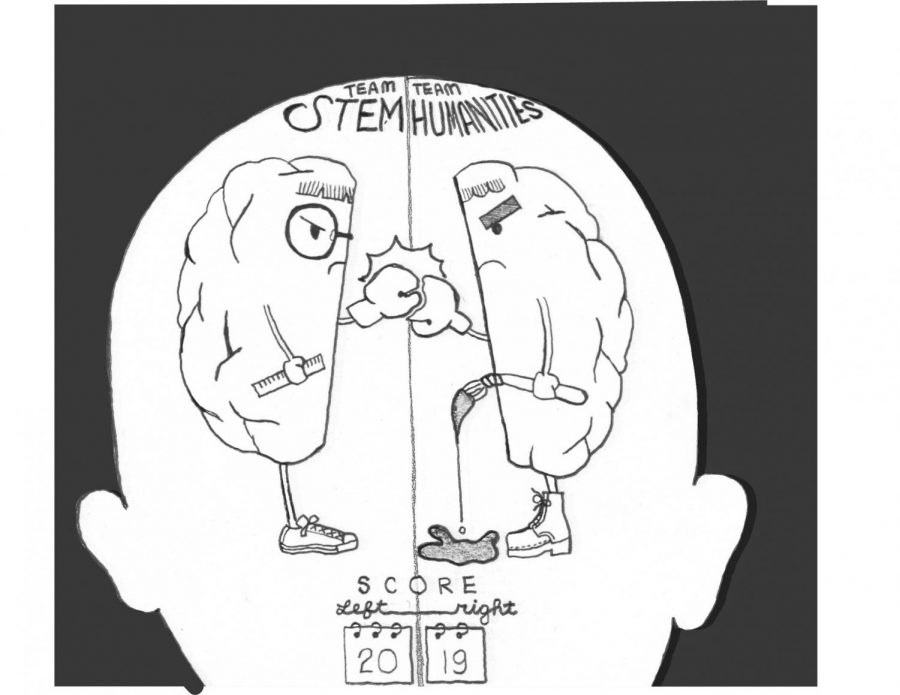It ‘STEMs’ from humanity
In the “brain brawl” between the STEM and humanities, it seems STEM wins all too often and the humanities are forgotten.
I was once voted “Most Likely to End Up Homeless After My Dreams Don’t Come True After College.”
By a landslide.
I was awarded this superlative at the end of freshman year by my classmates in the Academy of International Studies, a program oriented towards English, social studies and foreign language — in other words, the humanities. Being a part of this program at Glenbrook North, I’ve noticed that a majority want to pursue areas that are popularly perceived moneymakers such as science, technology, engineering and mathematics: STEM fields.
Since the beginning of my freshman year, I expressed an interest in pursuing something involving the humanities. Because of this interest, I was branded as a lost and dreamy cause by my classmates.
Humanities fields are valuable, necessary and equal in importance to science, technology, engineering and mathematics fields.
I may be dwelling on a joke award made by 15-year-olds that even I found funny, but the idea of the humanities being inherently less valuable than STEM fields is a pervasive perception among students and even people involved in the educational system.
The appeal of STEM fields in the public eye is simple: STEM majors, on average, earn more out of the gate than humanities majors. This appeal becomes heightened when compared with the perception of the humanities as a lackluster and dull pursuit. I’ve had multiple people tell me that they would rather die than sit through their English classes. You hear it once? Fine. But when you hear it again and again, it becomes a sign of a major problem.
History classes hardly fare better in reputation. Essentially, if you claim the humanities have a future, or God forbid, want to major in it, you are as far removed from reality as possible.
Now, let’s get back to reality. The idea that the job market is in heavy favor of STEM majors is a myth. Even though fields like computer science are gaining popularity, the idea that getting a purely STEM education automatically sets you for life is false.
Whether you’re writing dissertations on the French Revolution or working in industrial engineering, everybody needs the skills of communication, critical thinking and intercultural knowledge. The idea that liberal arts are useless in the job market is just as false. Consulting, law and business all require aptitude in English, history and language, which you are not offered with a purely STEM education. But enough about jobs. This may come as a major shock, but often behind careers, there are human beings.
When students in all levels of education perpetuate this false superiority of STEM over humanities, what kind of people do we create? Since we value a STEM education and the technical mindset that comes with it, we in turn disregard the humanities. We disregard arts, language, communication and creative thinking. We disregard the very parts of what make us human. We create people who don’t know how to be people.
We lose our own humanity.


